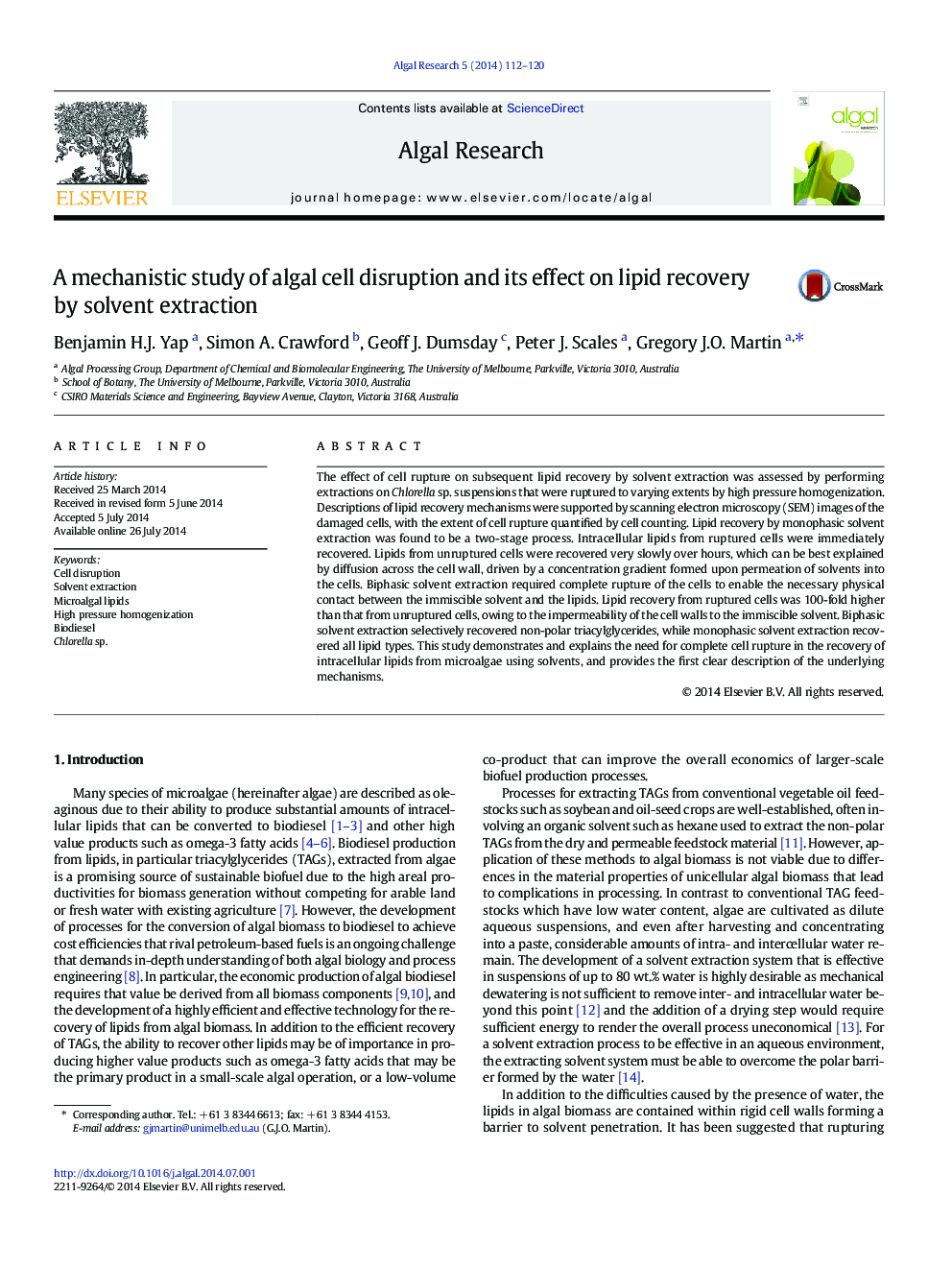| Article ID | Journal | Published Year | Pages | File Type |
|---|---|---|---|---|
| 1742097 | Algal Research | 2014 | 9 Pages |
•Biofuel production from algae requires efficient lipid extraction.•Cell rupture is critical for efficient lipid extraction from wet microalgal biomass.•Monophasic solvents can extract all lipids very slowly by passive diffusion.•Biphasic solvents selectively extract neutral lipids but cannot enter unruptured cells.
The effect of cell rupture on subsequent lipid recovery by solvent extraction was assessed by performing extractions on Chlorella sp. suspensions that were ruptured to varying extents by high pressure homogenization. Descriptions of lipid recovery mechanisms were supported by scanning electron microscopy (SEM) images of the damaged cells, with the extent of cell rupture quantified by cell counting. Lipid recovery by monophasic solvent extraction was found to be a two-stage process. Intracellular lipids from ruptured cells were immediately recovered. Lipids from unruptured cells were recovered very slowly over hours, which can be best explained by diffusion across the cell wall, driven by a concentration gradient formed upon permeation of solvents into the cells. Biphasic solvent extraction required complete rupture of the cells to enable the necessary physical contact between the immiscible solvent and the lipids. Lipid recovery from ruptured cells was 100-fold higher than that from unruptured cells, owing to the impermeability of the cell walls to the immiscible solvent. Biphasic solvent extraction selectively recovered non-polar triacylglycerides, while monophasic solvent extraction recovered all lipid types. This study demonstrates and explains the need for complete cell rupture in the recovery of intracellular lipids from microalgae using solvents, and provides the first clear description of the underlying mechanisms.
Graphical abstractFigure optionsDownload full-size imageDownload as PowerPoint slide
